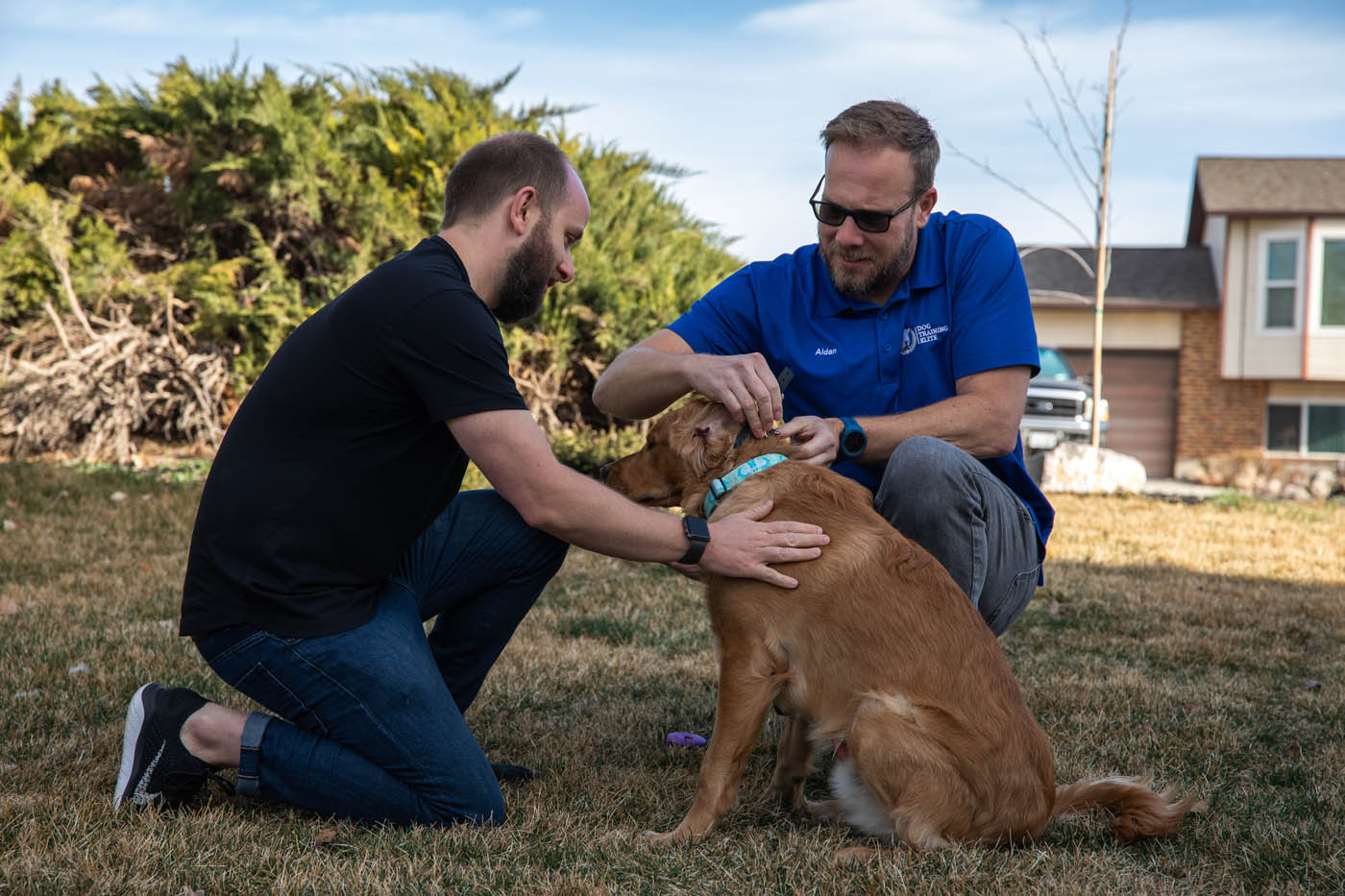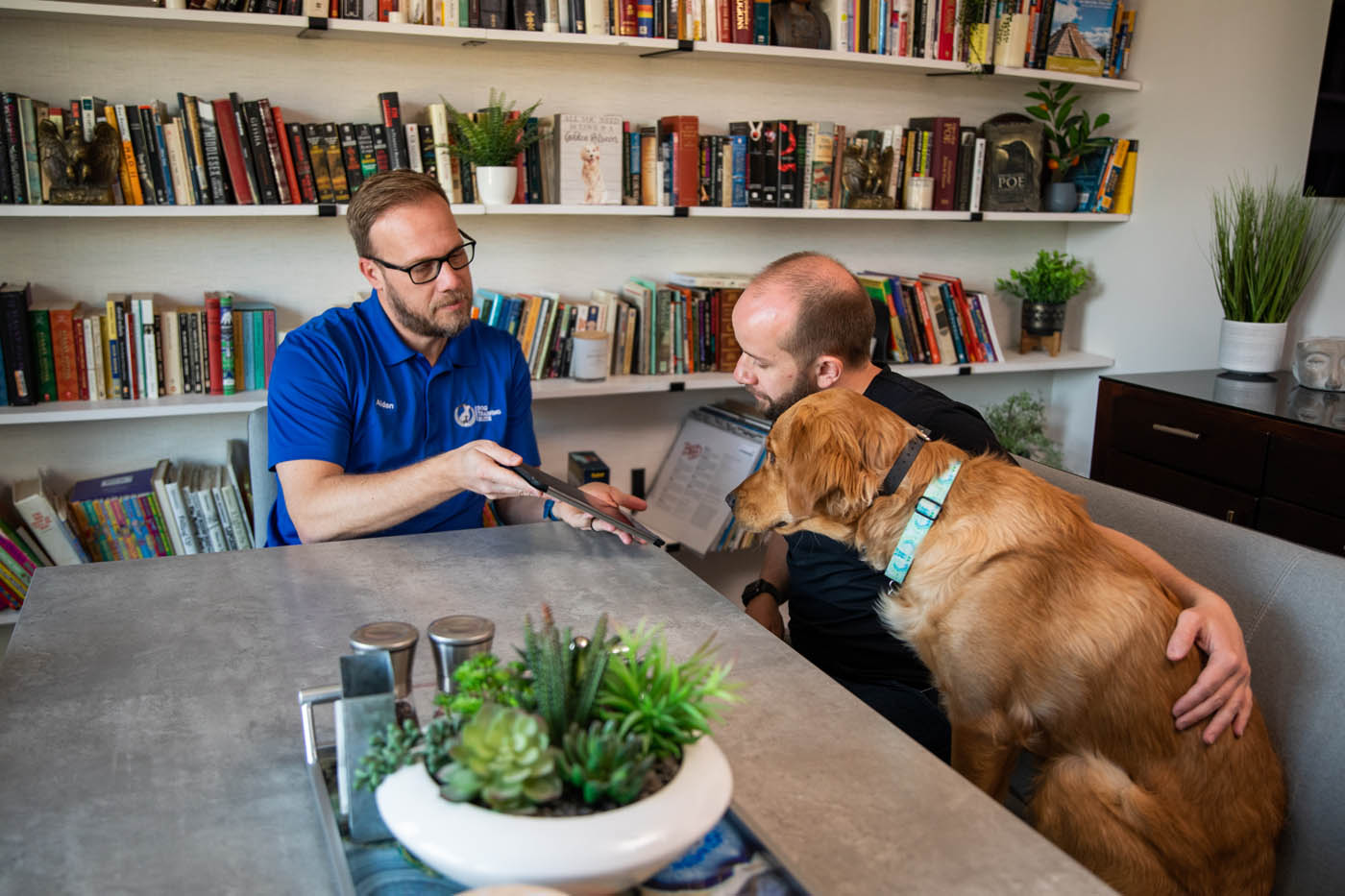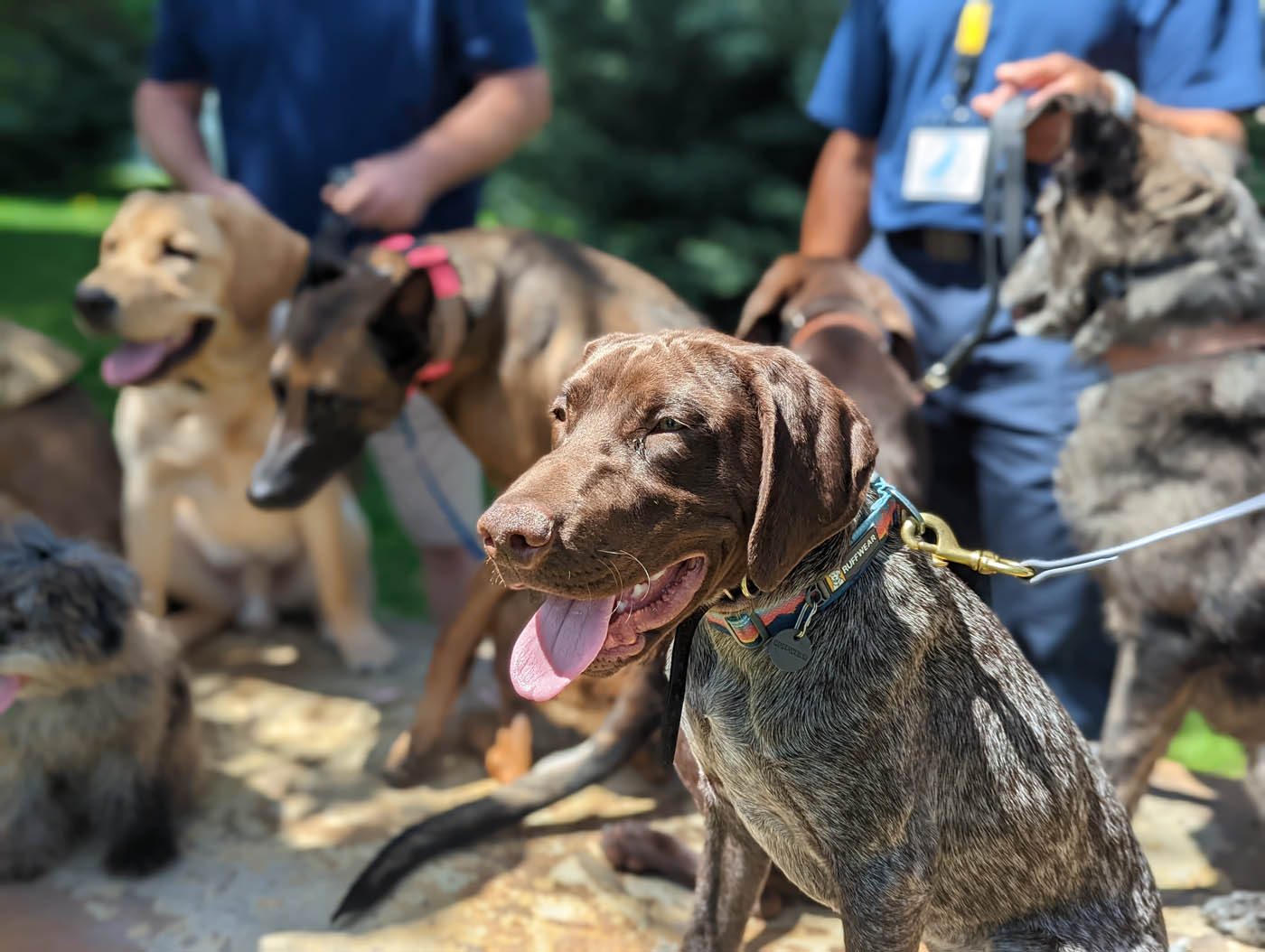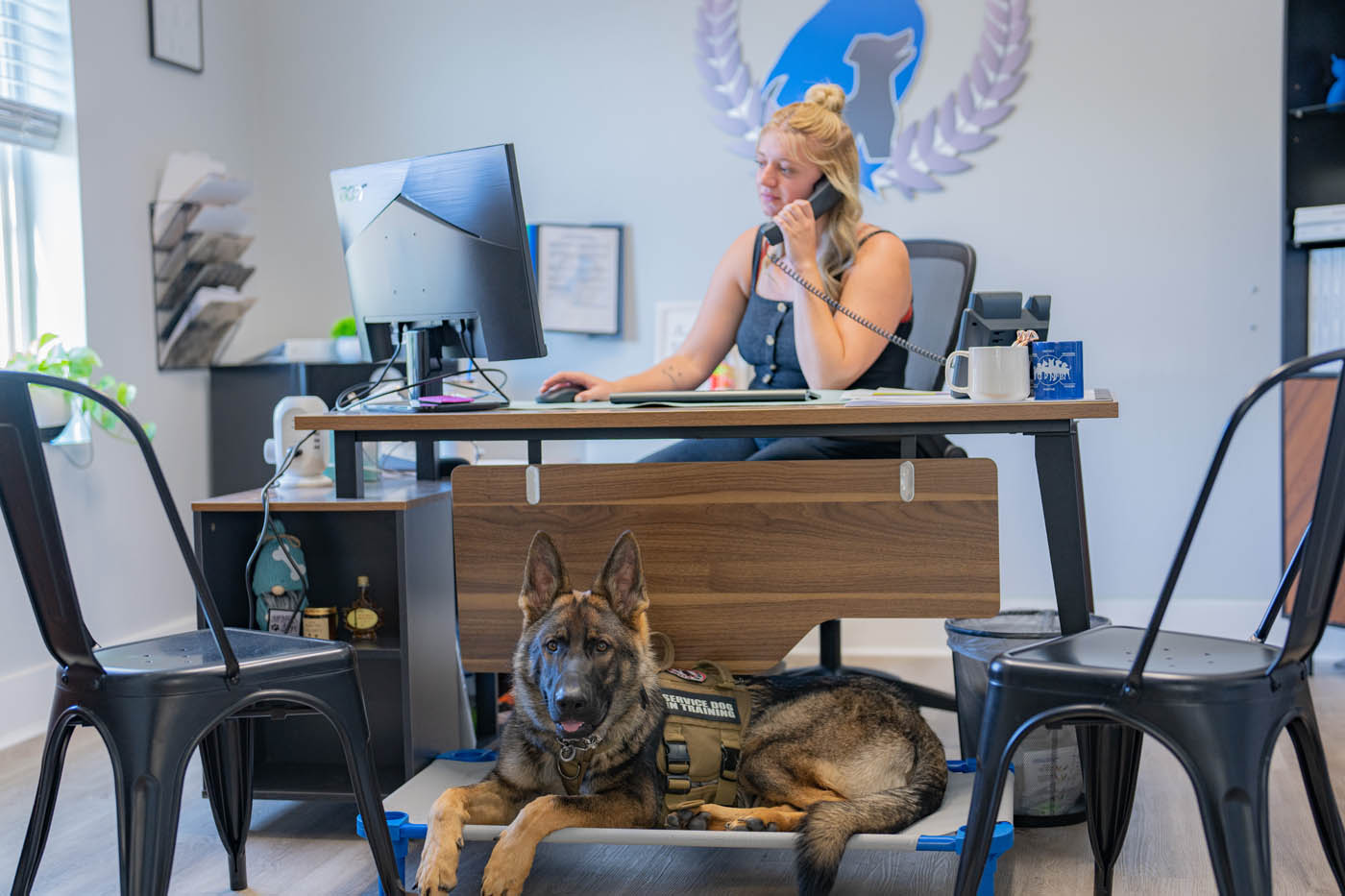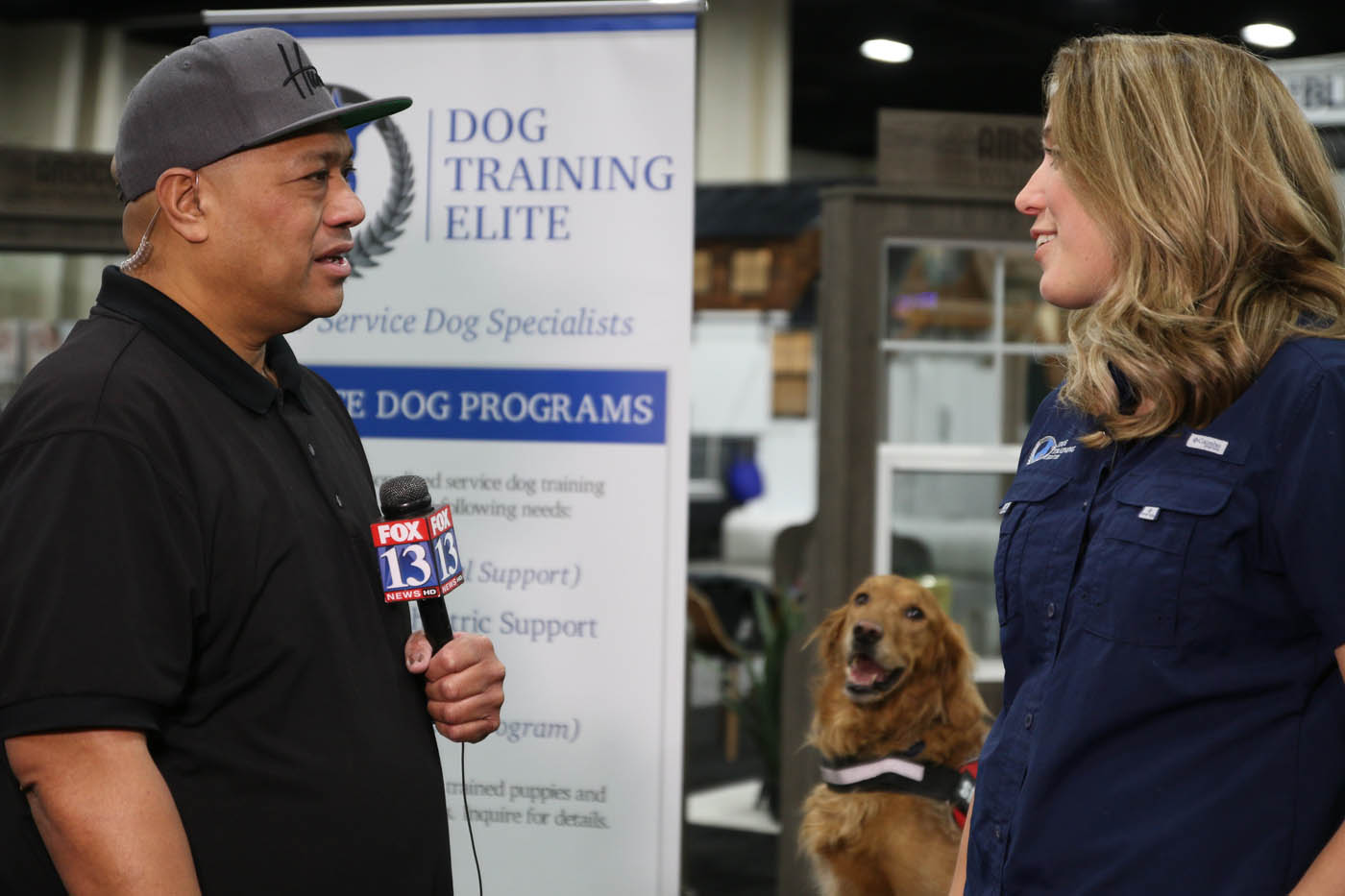Help Your Dog Lose Winter Weight in Columbus, OH
March 12, 2019
Here are some simple and effective ways you can help your dog lose some of their winter weight, brought to you by our experts in Columbus.
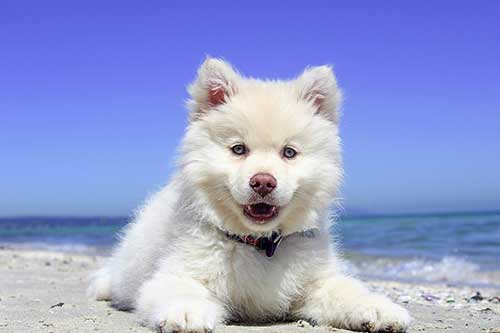
Winter weight gain is as prevalent for our dogs as it is for us. They do, after all, depend heavily on us to lead them in a healthy lifestyle. So if we've given in to lazy days and indulging in comfort food during the holidays, we're also prone to dwindling with our pup's activity and nutrition. No judgment here; it's easy to do! But now that the days are lengthening and the weather is warming you're likely making goals to lose some weight before summer fully arrives, and your dog may benefit from having the same goal. Here are some simple and effective ways you can help your dog lose some of their winter weight, brought to you by our dog training experts in Columbus.
Get Some Exercise
The most direct approach to helping your dog lose some of their winter weight is, unsurprisingly, getting them back into the routine of daily exercise. Every dog needs some kind of physical activity each day to help work off excess calories, get their heart pumping, and keep them happy and agile. And the best part? Dogs make excellent workout partners, so the two of you can get in better shape together as a team. You can take your pick of outdoor activities as the weather gets warmer, such as walking, running, cycling, hiking, swimming, etc. If the weather is still a bit too cold for you and your pup, you can get creative with modified indoor exercises. Prompt your pup to run up and down the stairs, play fetch, take a walk around the house, play tug of war with a sturdy toy, teach them a new trick, or you could introduce them to a doggy treadmill for a more fulfilling indoor walk.
Cut Back on Treats
If your dog has spent the winter season being spoiled with a lot of treats, it's time to cut back on them now that the holidays have come and gone. Regularly feeding your pup unhealthy treats and table scraps in addition to their normal meals will skyrocket their daily calorie intake, meaning quick weight gain the longer the habit continues. Cutting back on or eliminating these junky treats altogether from your dog's diet is an easy way to help them get back to a healthier weight. Or, you could simply replace these high-calorie treats with healthier, low-calorie, no-sugar versions with a lot of health benefits, and be sure to keep track of the additional calories they provide throughout the day.
Switch to Portion-Controlled Meals
In the midst of the busy holidays and dreary cold days, it's easy to switch to autopilot when it comes to your dog's meal plan, such as keeping the bowl full all day long to avoid frequent refills. But while it's certainly the easier option, this method will quickly end up being detrimental to your pup's health and weight. It's the same idea as feeding them frequent treats: more calories and less exercise means more weight gain. Dogs, like us, can only begin to lose weight once their diet reflects that of an active lifestyle. If you've gotten into the tendency to turn your dog's bowl into an "all-day buffet", start reducing their daily calorie intake by switching to portion-controlled meals. Instead of guesstimating how much your dog will need to eat throughout the day, calculate how many calories they should be intaking and how much food that means should be available to them for each meal and use a measuring cup to get that exact amount when it comes time to feed them.
Adjust Their Food
It's equally important to note that your dog's diet should change with the seasons according to how much their activity increases or decreases. The more exercise they're getting, the more calories they should be consuming, and vice versa. As your dog begins to get more active with better weather conditions, adjust their food accordingly to keep them at a healthy balance. You could also consider personalizing their blend of food to their specific breed, or switching to a weight management formula that provides them with a higher amount of nutrients/fiber and a lower amount of calories.
Schedule a Veterinary Appointment
As a general rule, you should consider consulting your vet before making a major change to your dog's diet or exercise routine, but you should also pay them a visit if you have concerns about exactly why your dog has gained weight and/or isn't losing weight. Not all winter weight-related issues are caused by excess calories or a lack of exercise. Your dog could be gaining an unusual amount of weight due to medical conditions such as a chronic illness (ex. Cushing's disease, underactive thyroid), heart disease, pregnancy, liver failure, or internal parasites. While many of these cannot be detected by you at home, a trip to the veterinarian will tell you if your dog has any hidden points of concern that could be causing their weight gain/retention before it becomes a more dangerous health issue.
As anyone who struggles with weight loss can attest to, it's a difficult journey. It takes a lot of hard work, determination, and commitment to keep to your goals. The same will be true in your efforts to manage your dog's weight. It will require some time and a change of mindset from both of you, but don't let the challenging moments dissuade either of you. Helping your dog to live a healthier life will add precious years to their life, and it will allow them to live those years to the fullest of their potential.
Do you have any questions or concerns? Dog Training Elite has developed a highly successful and unique obedience training program available for dogs of any age, size, or breed. Your pup can't lead a truly healthy lifestyle if they cannot understand basic obedience, or if they are trained out of fear or aggression. We use positive training methods for basic obedience that are based on the classical conditioning theory, offered both through in-home training sessions and group classes for a more advanced approach. Our goal is to provide you with a personalized, supportive experience that will help you raise a dog who is healthy, happy, and respectful. Contact Dog Training Elite today to learn more about our dog obedience training in Columbus, we're happy to help!

Get Your Free Assessment
You and your canine companion really can have it all. See how easy it can be to become a member of the elite pup society by requesting a free consultation today!
